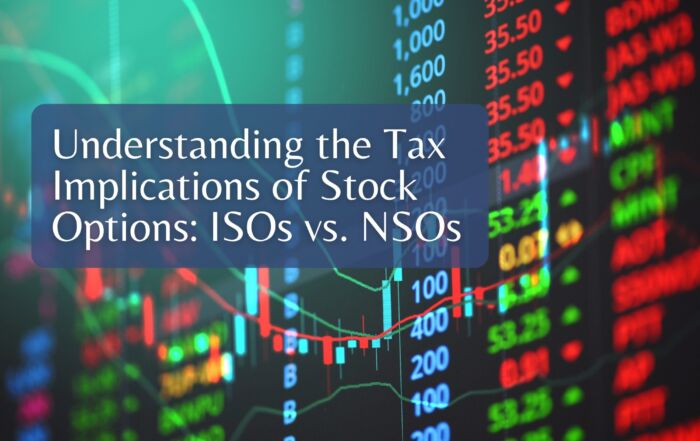4 Things to Know About Bitcoin

Whether you are a seasoned investor who stays up to date on the market, or you are new to personal finance, you have probably heard of Bitcoin. Its relevance in the market as well as pop culture references has made it a hot topic, and you may have some questions about how it works or what it is. Here is a list of 4 things to know about Bitcoin. This blog is a part of a series written by our summer intern, Makenna. This series is based off excerpts from the well-known book, A Random Walk Down Wall Street.
Where did Bitcoin come from?
Bitcoin is a digital currency, or cryptocurrency, released in 2009 by an anonymous creator under the pseudonym “Satoshi Nakamoto.” The anonymous creator explained that the goal of bitcoin was to create a “purely peer-to-peer version of electronic cash.” Bitcoin is not a stock, but it can be exchanged in a similar fashion between owners of the tokens and those willing to buy them. The price of bitcoin has fluctuated wildly between a few cents and around $20,000 since its beginning. It is accepted in various places around the world as a legitimate form of currency and can be exchanged for goods and services alike.
How Bitcoin Works
Bitcoin works by using a blockchain, or a secure public ledger. Computers around the world use the blockchain to record the ownership of all bitcoins as well as every transaction using bitcoin. The ledger can be seen by anyone, and it is monitored closely in order to make sure all bitcoin transactions are legitimate. Maintaining the network and processing new transactions takes a lot of work, which leads to how new bitcoin are created. People who work to maintain the computers and network earn bitcoin tokens in a process called “mining.” By making sure computers run properly and that no fraudulent transactions take place, the bitcoin “miners” create new bitcoin. There is a maximum of 21 million bitcoin available to be mined, and as of June 2021, 18.7 million, or roughly 89% of the total amount of bitcoin that can be mined has already been mined (source).
Is Bitcoin considered money?
Economists recognize that money has three main functions: a medium of exchange, a unit of account, and a store of value. Because bitcoin does not perform all three functions of money, it does not qualify as money. Bitcoin can be exchanged through transactions on the blockchain, and it is accepted as a form of currency around the world. Therefore, it functions as a unit of exchange. However, bitcoin prices fluctuate at such a high degree that it is not a unit of account nor a store of value. The value of one bitcoin changes at any moment, so it is not a stable unit of account that one can compare to other units. Some people think bitcoin should not be considered a store of value either because you cannot “store” bitcoin with confidence that the value of the bitcoin will not change.
Pros and Cons
Many investors tend to be skeptical of bitcoin since it is not a tangible form of currency and its value changes constantly. Supporters of bitcoin believe that it is the currency of the future. With no exchange rate across nations since it exists as its own currency, bitcoin would make international transactions easier and faster. In addition, bitcoin could be a secure and anonymous form of currency that is easily transferred between countries rather than using banking systems. Using bitcoin might be safer than transferring money through countries that have weak property rights because bitcoin cannot be taken by a government. The major con of bitcoin is its volatility. It would be hard to convince someone to exchange the majority of his or her assets for something that could change price so rapidly and to such a high degree. This volatility causes investors to doubt its sustainability.
Makenna Cooper
Summer Intern / Berry College Student
Share This Story, Choose Your Platform!
Wiser Wealth Management, Inc (“Wiser Wealth”) is a registered investment adviser with the U.S. Securities and Exchange Commission (SEC). As a registered investment adviser, Wiser Wealth and its employees are subject to various rules, filings, and requirements. You can visit the SEC’s website here to obtain further information on our firm or investment adviser’s registration.
Wiser Wealth’s website provides general information regarding our business along with access to additional investment related information, various financial calculators, and external / third party links. Material presented on this website is believed to be from reliable sources and is meant for informational purposes only. Wiser Wealth does not endorse or accept responsibility for the content of any third-party website and is not affiliated with any third-party website or social media page. Wiser Wealth does not expressly or implicitly adopt or endorse any of the expressions, opinions or content posted by third party websites or on social media pages. While Wiser Wealth uses reasonable efforts to obtain information from sources it believes to be reliable, we make no representation that the information or opinions contained in our publications are accurate, reliable, or complete.
To the extent that you utilize any financial calculators or links in our website, you acknowledge and understand that the information provided to you should not be construed as personal investment advice from Wiser Wealth or any of its investment professionals. Advice provided by Wiser Wealth is given only within the context of our contractual agreement with the client. Wiser Wealth does not offer legal, accounting or tax advice. Consult your own attorney, accountant, and other professionals for these services.





